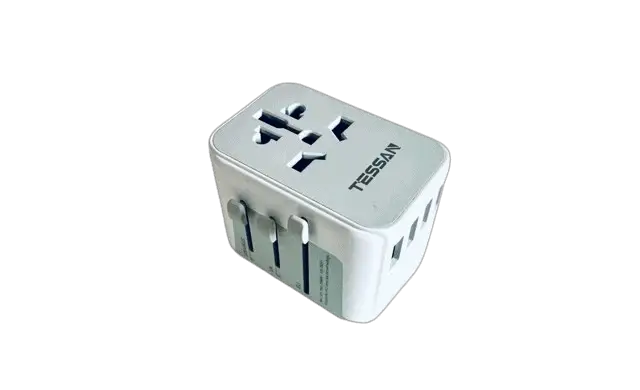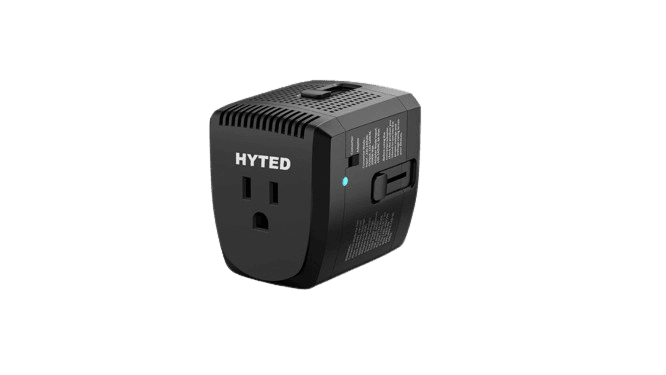You must ask yourself this question very often when traveling outside your country. There are a lot of countries that require a visa according to different situations, but what about Japan? Let’s see how visas work when you want to travel to Japan!

So, is a visa necessary to travel to Japan? Citizens traveling to Japan for tourism from the US, UK, Canada, Australia, New Zealand, or almost all European nations don’t need a visa as they have permission for short-term stay. However, citizens from outside the current 68 countries concerned by the visa exemption must apply for a visa.
Now let’s take a look with a little more detail to understand in which cases you need a visa (even when you travel for tourism purposes) and what you need to do precisely.
Visa Exemption and Types of Visa
Visa Exemption Arrangements between countries allow people to travel to another country without a visa. Luckily for Japan lovers, at the moment, 68 countries benefit from these arrangements with Japan. Since visas can be really hard to get, arrangements truly simplify your life, particularly when you decide to visit another country on vacation.
In general, the countries that are concerned by the Visa Exemption Arrangements have the right to a period-stay of 90 days, but there are some exceptions. The United Arab Emirates citizens can stay up to 30 days, while people from countries like Indonesia, Brunei, or Thailand can only stay in Japan for 15 days without a visa.
If you want to know what countries are concerned by the Visa Exemption Arrangements, you can find the full list at the official Ministry of Foreign Affairs of Japan website here. Even if your country benefits from a visa exemption by the time you are reading this article, it is highly recommended to refer to the link above later, as arrangements can change without notice.
There are different types of visas according to your travel purposes and duration. The most important types of visa, and also the most used, are:
Hey, check out these recommendations I have for you!
Before going any further, take a look at some of the recommendations I've handpicked for you. I think these are essential items you should have on your trip to Japan. You can check them out and buy them directly from Amazon.

|

|

|
| A universal travel adapter | A 10,000 mAh power bank | A travel adapter and converter |
- Tourist visa
- Working visa
- Study visa
Tourist Visa (within 90 days)

As I told you before, you don’t need a visa if you’re staying in Japan for less than 90 days (when coming from a country with the Visa Exemption Arrangement). You just need to show a valid passport and your return ticket when arriving in Japan to prove that you’re going to leave within 90 days.
However, if you’re involved in paid activities or media-related activities, you can’t benefit from the visa exemption.
When arriving in Japan with a “visa-free” status, you can’t switch to another visa status without leaving Japan. You have to return to your country and start the procedure for the correct type of visa.
Insider tips for your Japan trip. Quick, easy, and free!
I Want This
For instance, if you’re going to visit Japan and find a job for some reason, you have to return to your country, ask for a working visa, and only then return to Japan to start working.
If you come from a country other than the actual 68 that benefits from arrangements with Japan, you must apply for a tourist visa. The documents necessary are:
- Your passport (valid, of course)
- A visa application form filled and signed
- One photograph (passport size and less than 6 months old) to put in the application form
- Your flight itinerary (but don’t purchase the tickets before getting the visa)
- Proof that you have enough money to cover your travel expenses in Japan (last bank statement, for instance)
- Documents that show your travel purpose (hotel reservation, etc.)
- Immigration documents
Always check with your embassy first, as this list can change without notice.
Working Visa
If you’re going to Japan for work purposes, you must apply for a working visa, otherwise, you won’t be able to enter Japan. There are plenty of different working visas because they are categorized according to the professional field. For almost every type of working visa, you need to have a job offer.
When applying for a working visa, you must provide these documents:
- Your passport (valid, of course)
- A visa application form filled and signed
- One photograph (passport size and less than 6 months old) to put in the application form
- The original “Certificate of Eligibility” from the Ministry of Justice in Japan + one photocopy (you can find more information about this certificate here)
If you don’t have a Certificate of Eligibility, you must provide a lot of other documents to replace it. If you need more information on these documents, just visit the Japanese Embassy website for all the details.
Study Visa
If you’re from one of the 68 countries that have an arrangement and intend to study in a Japanese School for less than 90 days, you don’t need a visa. Your valid passport is enough for this kind of study. But if you plan to study for more than 3 months, you’ll have to apply for a study visa. Just like the working visas, you will need these basic documents:
- Your passport with a sufficient validity date
- A visa application form filled and signed
- One photograph (passport size) to put in the application form
- The original “Certificate of Eligibility” from the Ministry of Justice in Japan + one photocopy (you can find more information about this certificate here)
If you can’t provide a Certificate of Eligibility, you must gather a lot of other documents. The Japanese Embassy can guide you and help you with specific details.
Application Procedures
When applying for a visa, the applicant must go to the Japanese Embassy or the closest Consulate General of his residence. If your passport is issued from a country other than the one you live in, you must pick a Japanese Consulate General or Embassy that has jurisdiction over your country’s passport.
Depending on the purpose of your travel and your nationality, you will need to gather and present different documents. You can even be asked for documents from the inviting person in Japan in some cases.
Here’s a chart from the official Ministry of Foreign Affairs of Japan website to help you better understand the procedure steps.
Dreaming of Japan? Here’s your go-to guide for a great trip.
Download Free Guide
Procedures Chart

In the US, you can apply at the Japanese Embassy or any consulate-general in the country. The full list of Japanese embassies and consulate websites for all the countries can be found here.
Remember to always take with you the original documents and at least one copy. As a general rule, embassies and consulates don’t make copies, so if you want to keep your original documents, you better be prepared and take a copy with you.
Also, be warned that the embassy can ask for additional documents if they think it’s necessary.
Usually, it takes around 5 working days to get your application reviewed. However, notice that if you apply without a Certificate of Eligibility, it can take months, so it’s worth it to make the effort of getting it.
Visa General Information
Visa Fees
Standard Fees (Until March 31, 2020, because they are reviewed every year)
- Single entry visa: 27 USD
- Double and Multiple entry visa: 55 USD
- Transit visa: 6 USD
In the United States, US citizens don’t have visa fees. All payments must be done using cash when you’re going to pick up your visa, and it is recommended to have the exact amount of money. You can’t pay with checks or credit cards.
Some countries don’t have to pay visa fees. You can view the list of these countries here. This list is from the Japanese Embassy of the United States, if you are in another country, please check the list of the Japanese Embassy of your country.
Visa Validity
Normally, a single entry visa is valid for 3 months, so you must enter Japan within this period. Yet, if you have a multiple entry visa, this one is valid for one to five years. This type of visa is given to those with business purposes or coming from a country that has a bilateral agreement with Japan.
Related Questions
I want to stay longer in Japan. Is it possible? Yes, with the Longer Stays Program, people can stay up to one year. The initial period is 6 months, but it can be extended to one year (this can be done only once).



